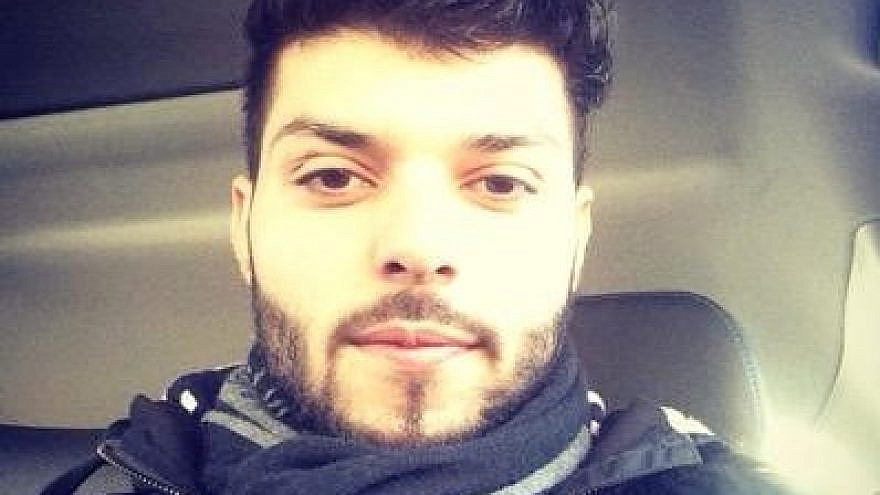Saadah Masoud pledges to address his “anger issues.” Does this mean he will no longer strike Jewish New Yorkers because they are Jewish?
Three acts of violence in Brooklyn and Manhattan — against Jewish men — cost Masoud 18 months of his freedom. Masoud pleaded guilty in federal court last November to one count of conspiracy to commit hate crimes, and on March 3 a federal judge sentenced Masoud to 18 months in prison. His lawyers tried to limit his sentence to six months.
His lawyers insisted he is not antisemitic. He only assaulted those he found to be vocal advocates for Israel, according to The New York Times. There are multiple points to challenge in that passage, but what counts most is that he would attack at all.
Prosecutors said that on the day before his first attack, Masoud wrote in a group chat, “VIOLENT!! ONLY VIOLENCE…IN PALESTINE THEY WISHHH THEY COULD SMACK A ZIONIST AND NOT GET TORTURED TO DEATH. WE CAN THO!!”
Masoud’s words reflect the attitude of many pro-Arab activists. They have no use for rational debate, but they employ lies, distort the facts, burn Israeli flags, make crude comparisons to the Holocaust, disrupt Israeli speakers, vandalize synagogues and college Hillel offices, harass Jewish students and even resort to Masoud’s level of violence.
Besides news of Masoud’s sentence, the HonestReporting organization reports that Mohammed El-Kurd admitted that Palestinian activists like himself do not believe their own words when they call Israel an apartheid state. It is a convenient means of portraying Israel the bad guy.
So when Masoud was sentenced, he told the judge: “I realize that I have anger issues and I need to work on them.”
Anger issues? Perhaps because he lives in Staten Island and cannot afford Manhattan? Maybe he blames the Jews for that since he thinks the Jews are rich and the poor Palestinians are, well, poor. After all, he was arrested for taking out his anger only on Jews.
And his defense lawyers wrote: “His conduct toward them would have been the same, no matter the religious faith to which they belonged.”
Then why, in spring 2021, did he ask a man wearing a necklace with a large Star of David if he was Jewish and then punch him in the face? He encountered his victim at a rally in mid-Manhattan where advocates for both sides clashed in the wake of rocket attacks between Israel and Gazan forces.
In Brooklyn the following month, Masoud approached City Council candidate Heshy Tischler, who was sitting in his car outside his home, the Times reports. Tischler emerged from his car and attempted to record with his phone, and Masoud knocked it out of his hand and an associate of Masoud punched Tischler in the face, as prosecutors said.
Masoud subsequently wrote in an Instagram direct message that “some jew politician said I assaulted him.”
A man identified as Matt Greenman was treated for a concussion in April 2022 after protesting a pro-Palestinian march in Manhattan. Masoud spotted Greenman with an Israeli flag draped over his shoulders like a cape, chased him, threw him to the ground and “repeatedly punched” him in the head and face, dragged his face along the sidewalk “and then ripped his Israeli flag from his neck and ran away,” prosecutors said, according to the Times.
An older woman who accompanied Greenman had fallen and injured her leg, prosecutors added.
And while his lawyers wrote in a court filing that Masoud was not antisemitic, Masoud told his case detective after his arrest in April 2022: “All this for one Jew?”
To underscore Masoud’s brutish conduct, Palestinian activist Mohammed El-Kurd declared that he accuses Israel of apartheid to shape public opinion, not necessarily if it is true, Rachel O’Donoghue reported for HonestReporting. El-Kurd, a Jerusalem correspondent for The Nation magazine, was addressing a crowd last week during Adelaide Writers Week in Australia.
“I think what the word itself as a word – I’m not even talking about the legal definition of the word ‘apartheid’; I’m not talking about the crime against humanity – but the negative word that is ‘apartheid’ and the negative connotation it carries in the psyche of the public. I think it’s capable, and it has been, engineering and establishing a cultural shift in the way people approach and talk about Palestine.
“But I’m less concerned with the accuracy of the word. You know, me and my friends have these arguments about like, ‘it’s settler colonialism,’ ‘it’s apartheid,’ ‘it’s police brutality,’ ‘it’s ethnic cleansing,’ ‘it’s this, it’s that.’ I don’t care. As long as there is a conversation happening in which the villain is portrayed clearly, I think that’s good.”
Several years ago, I recall engaging with an Arabic student at Temple University about the conflict. He was a nice enough guy, yet I noticed a disparity. Each time I criticized Israelis like then-Prime Minister Ariel Sharon, his eyes lit up. When I pointed to Yasser Arafat’s thuggish conduct, he rationalized.
It is an unswerving pattern. Apparently, most Arabic activists do not exactly abide by Queensberry rules, though a relative few beat up on Jews and others they see as enemies. They ignore free-speech advantages in America where they can raise legitimate grievances without being jailed or even shot, as is the habit in Middle East countries.


























